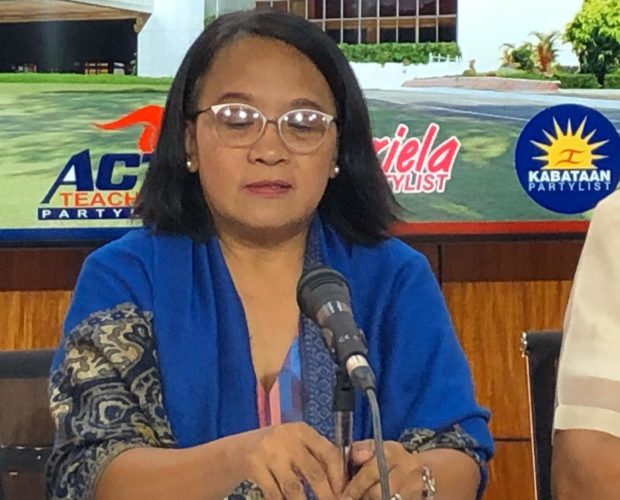Lawmaker: Congress should act on ‘MaJoHa’ blooper

ACT Teachers Rep. France Castro. INQUIRER.net file photo / Noy Morcoso
MANILA, Philippines — Teenagers unable to correctly answer easy questions on Philippine history may be hilarious for members of older generations, but after rolling on the floor laughing a few times, many also realize it was the result of an erroneous law and Congress should do something about it.
House Assistant Minority Leader France Castro, a member of the ACT Teachers party-list, said it was not the fault of teenagers if they could not correctly answer questions about the nicknames of Jose Rizal, Melchora Aquino, Gregorio del Pilar or even Gomburza.
The teenagers gave wrong answers during a quiz bee portion in the “Pinoy Big Brother: Kumunity Season 10 Teen Edition” that used to be aired on the ABS-CBN television network.
One teenager could not say the well-known nicknames of Jose Rizal (Pepe), Melchora Aquino (Tandang Sora) or the young Gen. Gregorio del Pilar (Goryo).
Even when the three priests Mariano Gomez, Jose Burgos and Jacinto Zamora — who were executed in 1872 after they were unjustly implicated in the Cavite Arsenal Mutiny — were named, one teenager replied the priests were better known as MaJoHa, instead of Gomburza.
Article continues after this advertisementCastro said the teenagers gave wrong answers because Philippine history was “abolished as a separate subject when the new K-to-12 curriculum was adopted in 2013.”
Article continues after this advertisementShe was referring to the Enhanced Basic Education Act of 2013, or Republic Act No. 10533, which added two more years to the Philippine education system and removed certain subjects, like history, from the school curriculum.
Castro recalled that in 2015, ACT Teachers was a copetitioner in at least two Supreme Court petitions questioning the constitutionality of the K-to-12 law, which also removed Filipino and panitikan as subjects in the tertiary level.
“The DepEd (Department of Education) claims that Philippine history is still part of the current curriculum but professional organizations’ analyses point to the fact that discussions of events in Philippine history are only integrated in several subjects,” she said.
“What we need is an independent subject, focused not only on teaching mere narration of facts and figures but also on ensuring that the students understand the implications of major historical events in our daily lives today,” she added.
Castro urged the House of Representatives to hasten the passage of a proposed measure, House Bill No. 8621, which seeks to restore the subject of Philippine history in the high school curriculum.
HB 8621 was filed in February 2021 by Castro and Kabataan Rep. Sarah Jane Elago, but it remains pending before the House basic education and culture panel, where a technical working group is working on a consolidated bill.
“We hope that the bill will be fast-tracked,” Castro said.
“More than the seemingly trivial matter of young quiz bee participants failing to guess the correct answer to a basic question, we want our citizens to have a critical mindset capable of identifying fake news and disinformation,” she added.
RELATED STORY